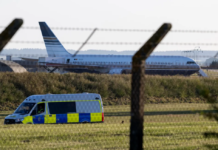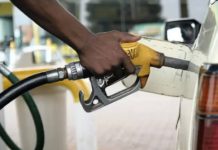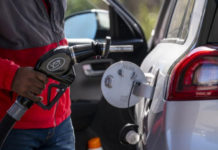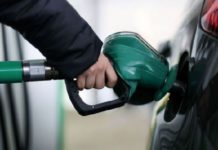New petrol and diesel cars will be banned from 2040 to improve air quality.
The crackdown could also see the introduction of levies on busy roads for owners of the most polluting vehicles.
And hopes of a major scrappage scheme to help those who were encouraged to buy diesels appear to have been dashed.
The strategy will be launched today by ministers Michael Gove and Chris Grayling.
It was forced on the Government by defeat in a High Court case on air pollution.
From 2040, drivers will be able to buy electric cars only – ending the near 150-year reign of the internal combustion engine.
From around 2020, town halls will be allowed to levy extra charges on diesel drivers using the UK’s 81 most polluted routes if air quality fails to improve.
Diesels might even be banned at peak times. Judges ruled the Government was breaking the law by allowing concentrations of nitrogen dioxide to build up in urban areas.
ClientEarth, an environmental law organisation, argued successfully that ministers were not doing enough to tackle the issue.
A judge ordered ministers to unveil the new air quality strategy to cut illegal levels of pollution from diesel vehicles by next Monday.
The Government also faces fines from the European Commission, which has sent Britain a final warning to comply with EU air pollution limits for NO2 or face a case at the European Court of Justice.
Any suggestion that drivers of diesels should be penalised will be greeted with anger from motoring organisations. They point out that the last Labour government had encouraged people to buy the vehicles.
It was thought that efficient diesel engines were the best way to cut greenhouse gas emissions. It later emerged that the nitrogen dioxide they emit was harming air quality.
Levels have been above legal limits in almost 90 per cent of urban areas in the UK since 2010.
The toxic fumes are estimated to cause 23,500 early deaths a year and the problem was declared a public health emergency by a cross-party committee last year.
New guidance to councils will see them urged to introduce a range of measures to bring down pollution.
These include making buses more environmentally-friendly, changing the phasing of traffic lights, removing speed bumps and changing road layouts. Town halls will be told to do all they can to avoid hitting diesel drivers, who bought the cars in good faith, with punitive measures.
But if these do not work, the Government will allow town halls to charge drivers of the dirtiest vehicles using the most polluted roads.
They could also restrict the times of day when they can use these roads – banning them during peak hours, for example. Town halls will not be allowed to bring in city-wide restrictions. They will only be able to take action on the 81 most polluted roads in the country.
A Government spokesman said: ‘Our plan to deal with dirty diesels will help councils clean up emissions hotspots – often a single road – through common sense measures which do not unfairly penalise ordinary working people.
‘Diesel drivers are not to blame and to help them switch to cleaner vehicles the Government will consult on a targeted scrappage scheme – one of a number of measures to support motorists affected by local plans.
‘Overall we are investing £3billion to tackle the effects of roadside pollution and supporting greener transport initiatives’.







